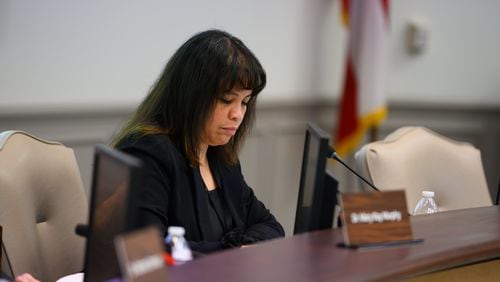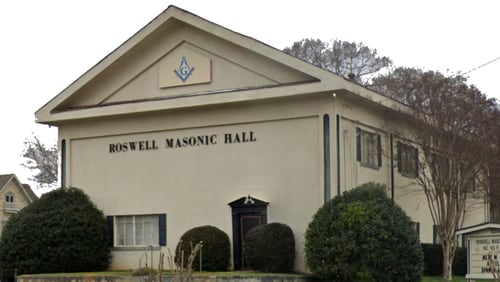The Gwinnett County school board tentatively adopted a $3.2 billion total budget for the upcoming fiscal year in a split vote Thursday.
Board members Adrienne Simmons and Tarece Johnson-Morgan raised concerns about the budget before voting against it. Both said they want to see efforts to reduce class sizes, more support for multilingual learners and ideas for financial incentives to recruit and retain teachers in schools with a larger proportion of low-income families.
The general fund, which pays for day-to-day operations, is proposed to be $2.5 billion, up from $2.4 billion in the current budget. Under the new budget, the combined millage rate would remain flat at 20.65 mills, although higher assessed property values are expected to drive more revenue.
Teachers and certified employees would receive a raise of $500 on top of a $2,500 raise from the state. Other staff would receive a raise of at least 4%. All eligible employees would also receive a salary step increase.
Deputy Superintendent Walt Martin spoke with The Atlanta Journal-Constitution after the vote and said the district added 2,100 teaching jobs in the past four years, which has helped reduce class sizes. Many of those positions used federal pandemic dollars that will expire later this year. In the proposed budget, the district is using its general fund to keep those jobs.
The last several budgets saw a major influx of funds from state and federal sources, along with unexpectedly high revenue from property taxes, Martin said. With this budget, his team focused on maintaining what it had in place rather than adding new programs or new jobs. Chair Steve Knudsen said the district will be in a place to focus on class sizes in the next budget.
Board member Mary Kay Murphy said the board should not be trying to solve problems in the district. Its role, she said, is oversight of the superintendent. Board Vice Chair Karen Watkins thanked staff for “trying to salvage as much as you could from items that were once budgeted” using federal funds that are now gone.
Staff members also highlighted new district-level positions for multilingual programming and instructional support within schools, but Simmons and Johnson-Morgan indicated the district should do more.
Thursday’s vote was the first of two required to adopt the budget. The final vote will be June 20, and the budget would take effect July 1. The district will have public hearings May 18 and June 20.
The board also approved contracts for two construction projects listed in the proposed budget — $2.6 million to build out the fourth floor of Central Gwinnett High School and $41.4 million for a new middle school in the Archer cluster. Those projects were part of SPLOST VI, a penny sales tax for education projects approved in 2020.
The board spent part of Thursday in training with the Georgia School Boards Association and discussed issues they’ve had working together.
Watkins said conflict has consequences: “If we continue to cast doubt on public education, it fosters the voucher debate, it fosters (the public) not wanting to vote on the SPLOST,” used to support district infrastructure. Staff said they may ask for a special purpose local option sales tax on the November ballot this year or in 2025.
Watkins said it is important to “articulate factually what we are doing as good stewards of our public’s taxpayer money so they continue to want to invest in us.” The board agreed to a group training on April 27.
About the Author







